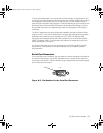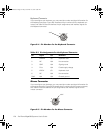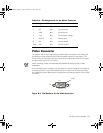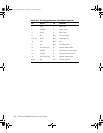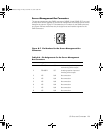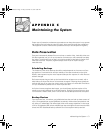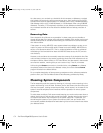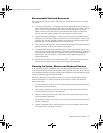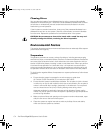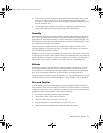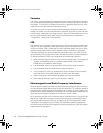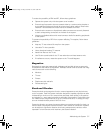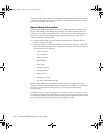
Maintaining the System C-1
$33(1',;&
0DLQWDLQLQJWKH6\VWHP
Proper use of preventive maintenance procedures can keep the system in top operat-
ing condition and minimize the need for costly, time-consuming service procedures.
This appendix contains maintenance procedures that you should perform regularly.
'DWD3UHVHUYDWLRQ
Everyone inadvertently deletes files at one time or another. Also, hard-disk drives can
fail after extended use, so it is not a question of
whether
you will eventually lose data,
but
when
. To avoid such loss of data, you should regularly make backup copies of all
hard-disk drive files. Frequent, regular backups are a must for anyone using a
hard-disk drive.
6FKHGXOLQJ%DFNXSV
The frequency with which backups should be made depends on the amount of stor-
age space on a hard-disk drive and the volatility of the data contained on the drive.
Heavily used systems require more frequent backups than systems in which files are
seldom changed.
Dell recommends that you back up the hard-disk drive at least once a week, with a
daily backup of those files known to have been changed. Following these guidelines
ensures the loss of no more than a days work in the event of a hard-disk drive failure
or if you inadvertently delete one or more important files.
As further insurance against data losses, you should keep duplicate copies of the
weekly and monthly backups at an off-site location. Doing this ensures that you lose
no more than a weeks work, even if one of the on-site backups becomes corrupted.
%DFNXS'HYLFHV
Tape drives are fast, convenient, and reliable devices that can back up data at rates of
up to 1.5 megabytes per second (MB/sec) (sustained, without data compression) and
can often run unattended. Dell offers tape drives with storage capacities in the range
of 20 to 70 gigabytes (GB) (when available) per tape cartridge and recommends these
drives and their associated backup software for use as system backup devices.
3502Ebk0.book Page 1 Friday, November 13, 1998 10:00 AM



